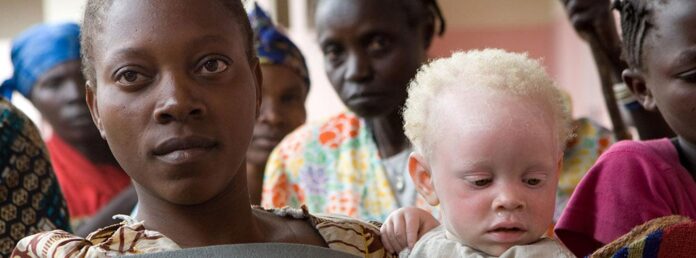Albinism is a rare, non-contagious, genetically inherited difference present at birth. In almost all types of albinism, both parents must carry the gene for it to be passed on, even if they do not have albinism themselves. The condition is found in both sexes regardless of ethnicity and in all countries of the world. Albinism results in a lack of pigmentation (melanin) in the hair, skin and eyes, causing vulnerability to the sun and bright light. As a result, almost all people with albinism are visually impaired and are prone to developing skin cancer. There is no cure for the absence of melanin that is central to albinism.
People with albinism face multiple forms of discrimination worldwide. Albinism is still profoundly misunderstood, socially and medically. The physical appearance of persons with albinism is often the object of erroneous beliefs and myths influenced by superstition, which foster their marginalization and social exclusion. This leads to various forms of stigma and discrimination.
The United Nations Human Rights Council adopted a resolution in 2013 (A/HRC/RES/23/13) calling for the prevention of attacks and discrimination against persons with albinism. Moreover, in response to the call from civil society organizations advocating to consider persons with albinism as a specific group with particular needs that require special attention, the Council created the mandate of the Independent Expert on the enjoyment of human rights by persons with albinism. In June 2015, the Human Rights Council appointed Ms. Ikponwosa Ero as the first Independent Expert on the enjoyment of human rights by persons with albinism.

Views: 100






